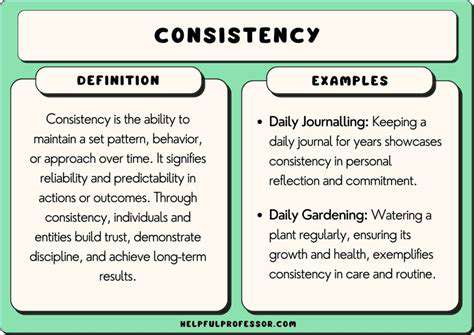How to Build a Habit of Reading for Well being
Overcoming Obstacles and Staying Motivated
Identifying and Overcoming Roadblocks
One of the biggest obstacles to establishing a consistent reading habit is identifying the specific roadblocks that are preventing you from making time for it. Perhaps you're struggling to find quiet time amidst a busy schedule, or maybe you're simply not finding books that capture your interest. Understanding these personal barriers is the first step towards proactively addressing them. This might involve creating a dedicated reading nook, adjusting your daily schedule to incorporate reading time, or exploring different genres and authors to discover something that resonates with you. Taking the time to pinpoint the issues will help to develop targeted solutions.
Another common hurdle is the feeling of being overwhelmed by the sheer volume of books available. Knowing where to start or feeling like you need to read a certain number of books per week can lead to feelings of pressure and ultimately discourage you. Instead of feeling pressured to tackle everything at once, start small. Choose a book that seems accessible and engaging, and focus on the enjoyment of the reading experience rather than the quantity. The key is to develop a positive association with reading, which will help maintain motivation and consistency in the long run. By focusing on smaller, achievable goals, you can make reading a sustainable part of your daily routine.
Cultivating a Positive Mindset for Reading
Establishing a positive mindset is crucial for nurturing a consistent reading habit. This involves cultivating an appreciation for the act of reading itself and understanding its benefits. Reading not only enriches your knowledge and vocabulary but also expands your perspective and improves your comprehension skills. By focusing on these advantages, you can build a strong motivation to make reading a daily practice. Shifting your focus from viewing reading as a chore to viewing it as a rewarding activity can significantly impact your commitment.
Envisioning the positive outcomes of reading, such as increased knowledge, improved focus, and a greater understanding of the world, can fuel your motivation. Visualize yourself immersed in a captivating book, feeling intellectually stimulated and emotionally engaged. This mental imagery can reinforce the value of reading and help you overcome any resistance to starting or continuing. Consistently reminding yourself of the positive impacts of reading can significantly enhance your commitment.
Furthermore, surrounding yourself with a supportive environment is essential for maintaining a positive mindset. Engage with other readers, join book clubs, or simply share your reading experiences with friends and family. Connecting with others who value reading can create a sense of community and shared passion, making the act of reading feel less solitary and more enjoyable. Ultimately, fostering a supportive environment can significantly enhance your motivation and engagement.
Maintaining Motivation Throughout the Journey
Maintaining consistent motivation throughout your reading journey requires a proactive approach. Regularly reviewing your progress and celebrating small milestones can significantly boost your enthusiasm. Acknowledging your accomplishments, no matter how small, reinforces the positive association you've built with reading. Tracking your reading progress, whether it's through a dedicated journal or a simple calendar, can offer a sense of accomplishment and encourage you to continue.
Implementing strategies to overcome procrastination and make reading a priority is also important. Scheduling specific reading times in your calendar, setting realistic goals, and breaking down large reading tasks into smaller, manageable chunks can help combat procrastination. By creating a structured approach, you can make reading a non-negotiable part of your routine, thus enhancing motivation and consistency.
The Benefits of Regular Reading for Well-being
Enhancing Cognitive Function
Regular reading stimulates various cognitive functions, including memory, attention span, and problem-solving skills. Engaging with different narratives, complex ideas, and diverse perspectives strengthens neural pathways and improves overall mental agility. The effort required to process information from texts strengthens the brain's ability to learn and retain knowledge, leading to a more robust and adaptable mind.
Reducing Stress and Anxiety
Reading can be a powerful stress reliever. Immersing yourself in a captivating story, poem, or informative article allows you to escape the pressures of daily life and enter a different world. This mental detachment can calm the mind, lower cortisol levels (the stress hormone), and promote a sense of relaxation and well-being. The focus required for reading can also help to distract from anxious thoughts and feelings.
Boosting Emotional Intelligence
By encountering diverse characters and narratives, readers develop empathy and understanding for different perspectives. Reading helps readers recognize and process emotions, both in themselves and others, fostering emotional intelligence. Exploring the complexities of human relationships, motivations, and experiences broadens our emotional vocabulary and allows us to connect with others on a deeper level. This understanding can lead to more effective communication and stronger interpersonal relationships.
Improving Focus and Concentration
Reading requires sustained focus and concentration. The act of following a storyline, absorbing information, or deciphering complex ideas strengthens our ability to concentrate. Regular practice with reading exercises the brain's ability to filter out distractions and stay engaged with a task, which can have positive impacts in various areas of life, from work to personal projects.
Expanding Knowledge and Understanding
Reading exposes us to a vast array of knowledge and ideas. From history and science to literature and philosophy, books offer windows into different cultures, perspectives, and ways of thinking. This expanded knowledge base fosters intellectual curiosity, promotes critical thinking, and allows us to develop a deeper understanding of the world around us. Reading broadens our horizons and challenges our assumptions, ultimately leading to personal growth.
Promoting Sleep and Relaxation
Engaging in quiet reading before bed can be a highly effective way to promote relaxation and prepare for sleep. The calming effect of focusing on a book can help to reduce racing thoughts and anxieties, allowing the mind to unwind and prepare for rest. A relaxing bedtime reading routine can contribute to better sleep quality and a more restorative night's sleep, which is crucial for overall well-being and physical health. The act of reading in a quiet environment can often be a soothing experience that facilitates a peaceful transition into sleep.
Read more about How to Build a Habit of Reading for Well being
Hot Recommendations
-
*Guide to Managing Gout Through Diet
-
*Best Habits for Financial Well being
-
*How to Build a Routine for Better Mental Health
-
*How to Eat Healthy on a Budget [Tips & Meal Ideas]
-
*Guide to Practicing Self Acceptance
-
*How to Incorporate More Movement Into Your Day
-
*Guide to Managing Chronic Pain Naturally
-
*Guide to Building a Reading Habit for Well being
-
*Top 5 Weight Loss Supplements That Actually Work
-
*Best Exercises for Postpartum Recovery [Beyond Abdominal Work]










![Best Exercises for Postpartum Recovery [Beyond Abdominal Work]](/static/images/26/2025-07/PelvicFloorExercises3ATheFoundationofPostnatalWellness.jpg)
